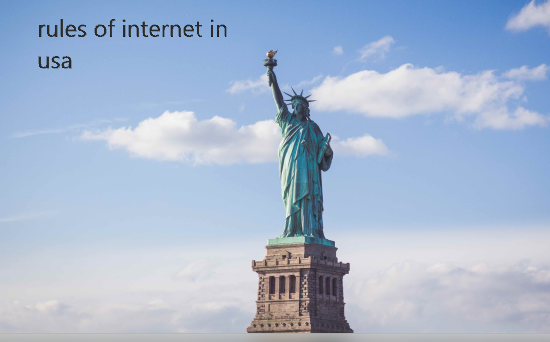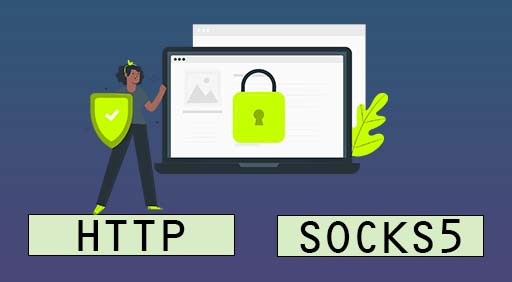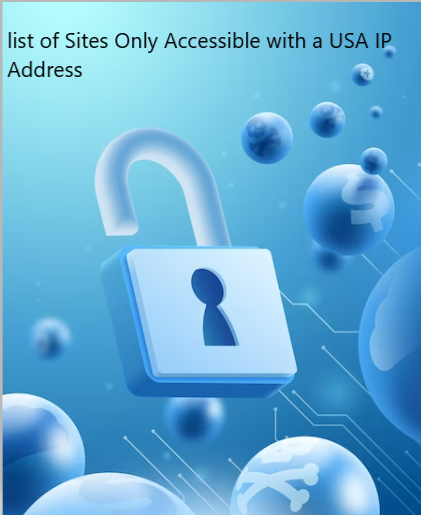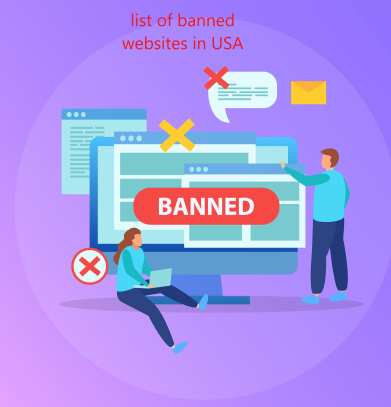buy usa proxy : The internet rules of usa are multifaceted and complex. Here is a comprehensive list of some of the key internet rules of usa:
browse these articles:
list of Sites Only Accessible with a usa IP Address
List of Sites Blocked for usa IP Addresses
- General Data Protection Regulation (GDPR): A regulation established by the European Union that affects businesses operating in the EU, including those in the USA that process EU citizens’ personal data. It aims to protect individuals’ data privacy and requires businesses to obtain explicit consent before collecting, processing, or storing personal data.
- Communications Decency Act (CDA): A law that regulates the content of online communication, particularly on social media platforms. It holds website owners responsible for the content posted by their users and makes it illegal to publish indecent or obscene material online.
- Electronic Communications Privacy Act (ECPA): A law that governs electronic communications and protects them from unauthorized interception, access, or disclosure. It sets standards for law enforcement agencies to obtain access to electronic communications records.
- Patriot Act: A law that gives law enforcement agencies greater surveillance powers to combat terrorism. It allows the government to intercept and monitor electronic communications, including emails and phone calls, without a warrant in some cases.
- Net Neutrality: In 2015, the Federal Communications Commission (FCC) implemented net neutrality rules, which prohibited internet service providers (ISPs) from blocking or throttling internet traffic or offering paid prioritization to certain content or websites. However, in 2018, the FCC voted to repeal these rules, which has been a topic of controversy and ongoing debate.
- Children’s Online Privacy Protection Act (COPPA): This law requires websites to obtain parental consent before collecting personal information from children under the age of 13. It also requires websites to post privacy policies and provide parents with the option to review and delete their child’s personal information.
- Digital Millennium Copyright Act (DMCA): This law provides a legal framework for addressing copyright infringement online. It includes provisions for takedown notices, which allow copyright holders to request the removal of infringing content from websites and platforms.
- Cybersecurity Information Sharing Act (CISA): This law allows companies to share information about cybersecurity threats and breaches with the government, in order to help prevent future attacks and protect against cyber threats.
- Computer Fraud and Abuse Act (CFAA): This law criminalizes unauthorized access to computers and computer systems, including hacking and other cyber crimes.
- Online Harassment: There are various laws at the state and federal level that prohibit online harassment, cyberbullying, and stalking. These laws can apply to a range of behaviors, from sending threatening messages to posting defamatory content online.
- Digital Accessibility: There are various laws, including the Americans with Disabilities Act (ADA), that require websites and digital content to be accessible to people with disabilities. This includes providing accommodations such as screen readers, captions, and other assistive technologies.
These are just a few examples of the many rules and regulations that govern the internet in the USA. As technology continues to evolve, so do the laws and policies that regulate it, making it important to stay up-to-date on any changes and developments in the field.





